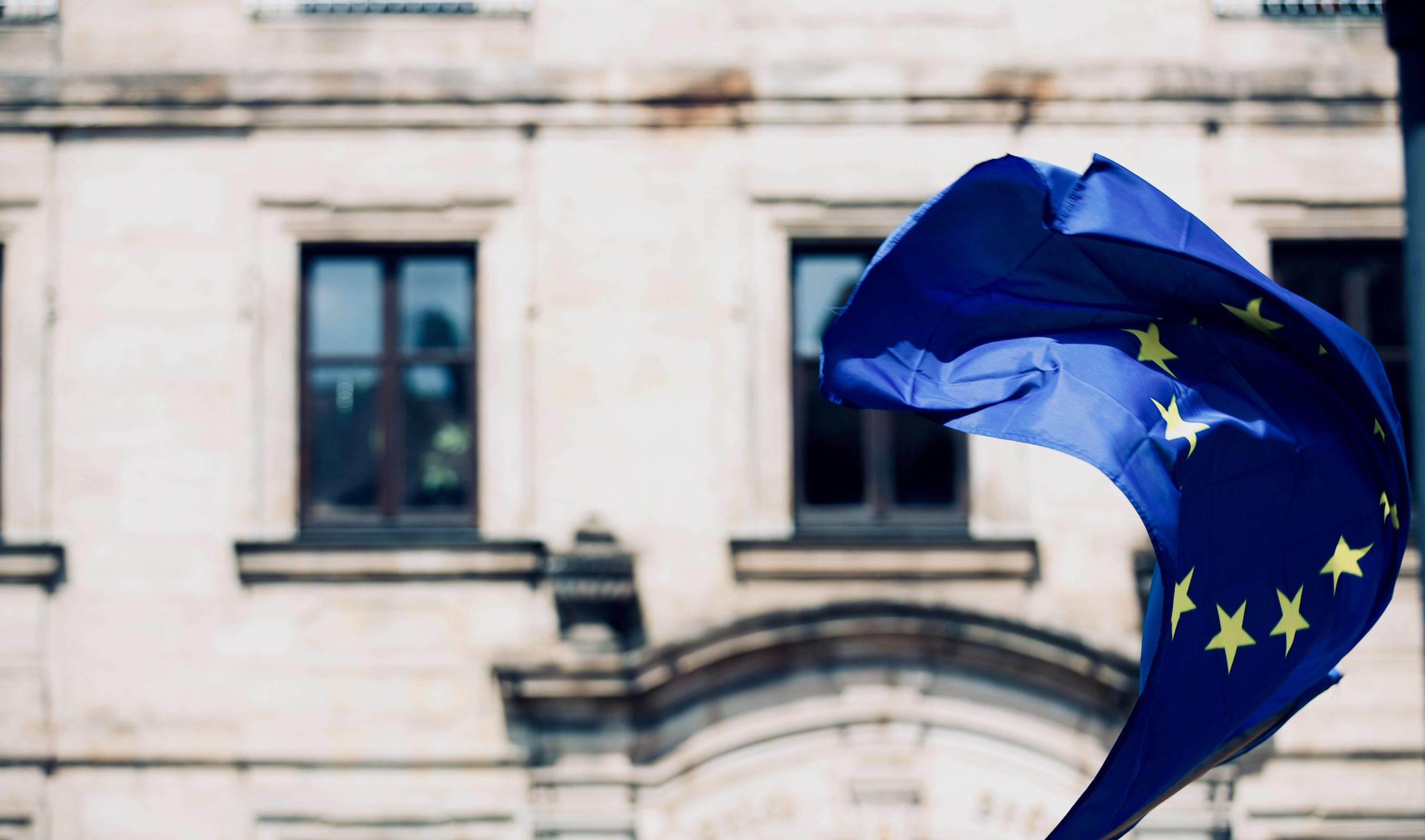Mapping the EU policy landscape: who’s who and why it matters
A starters guide to the actors shaping EU legislation

If you’re new to EU policymaking, it’s important to know that decisions aren’t made by institutions alone. Around the European Commission, Parliament, Council and national bodies exists a dynamic network of stakeholders.
From advocacy groups and NGOs to legal advisers, media, think tanks and lobbyists. These actors help shape legislation, influence opinion, and support compliance. Crucially, they also provide input and advice to policymakers on everything from digital rules and climate to health, trade and social issues.
The 7 most common types of EU influencers
This article offers a beginner-friendly overview of the most common types of EU influencers, explaining what they do, how they work and why they matter.
1. Advocacy & civil society organisations
Advocacy groups and non-governmental organisations (NGOs) are among the most visible influencers in the EU policymaking environment. They represent a wide range of interests, environmental protection, consumer rights, social justice, labor standards, gender equality, digital privacy and much more.
What they do:
These groups monitor legislation, provide expert input on proposed laws, engage with policymakers and the media, and often organize campaigns or public mobilization. Their main goal is to shape policies in line with their mission or the interests they represent.
How they operate:
They participate in public consultations, submit position papers, meet with Members of the European Parliament (MEPs) and Commission staff and often join broader coalitions to strengthen their voice.
Why they matter:
They provide civil society with a voice in EU policymaking. Their expertise and advocacy can help close regulatory gaps, increase transparency and promote socially responsible outcomes.
Example:
For instance, a coalition of consumer protection NGOs may collaborate to respond to draft EU legislation on AI transparency. By submitting a joint position paper and meeting with relevant MEPs, they can push for stronger safeguards for end-users and more ethical AI deployment. It’s an approach that often leads to concrete changes in the legislative text.
2. Legal and compliance advisers
Law firms and legal consultants are essential players in the policy ecosystem, especially as EU legislation becomes increasingly complex. These organisations focus on interpreting EU laws and helping businesses, public authorities or associations understand their obligations and risks.
What they do:
They offer legal analysis, draft compliance guidance, assist with impact assessments and occasionally help challenge or defend regulations before EU courts.
How they operate:
Legal advisers work closely with clients to assess how evolving laws, such as digital regulations, sustainability mandates or competition rules affect operations. Some also engage in lobbying on technical issues or regulatory clarification.
Why they matter:
They act as translators between policy and practice. By making legal frameworks accessible and actionable, they help both public and private sector actors remain compliant and informed.
Example:
As an example; when the EU introduces new rules on data transfers under the GDPR, a legal consultancy may advise a tech company on how to adapt its internal processes to remain compliant, or how to respond to a public consultation. This could involve making a submission to policy-makers, updating privacy policies, conducting data protection impact assessments and engaging regulators for clarification, ensuring the business avoids penalties while maintaining smooth operations across member states.
3. Public affairs and lobbying firms
Professional lobbyists and public affairs consultants represent business interests, trade associations and sometimes NGOs. Their mission is to influence policy outcomes by ensuring decision-makers hear their client’s perspective.
What they do:
These firms track legislative files, meet with policymakers, build coalitions, organize events and prepare advocacy strategies. Their core function is to promote favorable outcomes or mitigate possible regulatory impact for their clients.
How they operate:
They work on behalf of clients across industries, from healthcare and digital to energy and transport. Lobbying is regulated under the EU Transparency Register, which tracks who is engaging with EU institutions.
Why they matter:
They facilitate structured, professional engagement between private stakeholders and EU institutions. Their work helps shape balanced policy that considers economic and operational realities.
Example:
For instance, a public affairs consultancy representing a renewable energy trade association may monitor EU climate legislation and help the client prepare evidence-based recommendations on improving energy grid integration. The firm might arrange stakeholder roundtables with MEPs and Commission officials, highlighting both the technical feasibility and policy implications. This contributes to a well-informed debate while ensuring transparency and compliance with EU lobbying rules.
4. Media and press
The media plays a powerful role in shaping public discourse and influencing the policy agenda in Brussels and across member states. From mainstream publications to specialist EU policy platforms, media actors serve as watchdogs, interpreters, and amplifiers.
What they do:
Journalists and media organisations report on EU developments, investigate regulatory processes, highlight stakeholder positions and offer platforms for debate.
How they operate:
Some focus on general news, while others cover EU politics exclusively. Many maintain close relationships with policymakers and stakeholders, gaining access to briefings, leaks and institutional documents.
Why they matter:
The media can pressure decision-makers, influence public perception and elevate overlooked issues. EU-focused journalism is especially important in making complex policy debates accessible and transparent.
Example:
A specialised EU news outlet might publish an exposé on how proposed changes to the Digital Services Act impact small businesses. Through interviews with policymakers, experts and NGOs, it highlights competing interests and loopholes, sparking debate in committees and among advocacy groups, and influencing the final regulation.
5. Think tanks and research institutes
Think tanks and policy research organisations offer independent analysis and policy recommendations. They are often composed of former policymakers, academics and subject-matter experts.
What they do:
They conduct studies, publish reports, organize events and advise on long-term policy direction. Their work supports evidence-based decision-making at EU and national levels.
How they operate:
Many think tanks maintain close ties to political groups, academic institutions or government departments. They often participate in consultations, roundtables and high-level panels.
Why they matter:
Their expertise enhances policy quality, provides intellectual grounding for legislation and informs public debate. They are especially influential on strategic or cross-sectoral issues such as security, climate, digitalization or social cohesion.
Example:
A Brussels-based think tank might publish a paper on the EU Green Deal’s social and economic impact. Presented at a roundtable with officials, MEPs, business leaders and civil society, the findings help refine legislation and are later cited in debates and media.
6. Trade associations and business groups
These represent the collective interests of industries, sectors or professions. They advocate for favorable policy environments and engage regularly with EU bodies.
What they do:
They monitor policy files, develop sector positions, lobby on behalf of members and provide input into technical regulations and standards.
How they operate:
Often based in Brussels, these groups have permanent staff, policy analysts and communication teams. They serve as bridges between EU institutions and industry players.
Why they matter:
They ensure EU policymakers understand how laws impact the economy, innovation, employment and competitiveness. Their role is vital in areas like sustainability, product safety and trade.
Example:
A European trade group representing the packaging industry might engage with EU institutions during the revision of packaging and waste legislation. It gathers feedback from national member associations and companies to identify challenges and innovations, such as recyclable materials or circular economy initiatives. The group consolidates this into a formal industry position, shares technical input with the European Commission during public consultations and presents data at stakeholder workshops. This helps align legislation with both environmental goals and industry realities, contributing to more effective and implementable policy.
7. Consultancies and market intelligence providers
In an increasingly data-driven world, a growing number of firms provide real-time intelligence on policy trends, regulatory developments and stakeholder dynamics.
What they do:
These organisations offer subscription services, dashboards and monitoring tools. They track amendments, votes, consultations and political signals that can affect business or advocacy strategy.
How they operate:
Using AI, policy databases and expert analysis, these firms help clients anticipate change, engage early and allocate resources effectively.
Why they matter:
They give organisations a competitive edge by reducing uncertainty, spotting opportunities and allowing timely reaction to evolving EU dynamics.
Example:
For instance, a consultancy might use sentiment analysis to monitor reactions to a new regulation proposal. By analysing social media posts, public statements from policymakers, press coverage and even transcripts of speeches in the European Parliament, the firm can detect shifts in tone and priority across different stakeholder groups. This insight helps stakeholders better tailor messaging, anticipate pushback and refine engagement strategy.
Why understanding stakeholders matters
For startups, advocacy professionals, NGOs or anyone seeking to engage in EU affairs, understanding who the key stakeholders are and how they operate, is essential. The European Union policymaking environment is vast, multilayered and often complex. Within it, a wide range of actors influence how laws are drafted, debated and ultimately applied. These aren’t just passive observers; they are active shapers of Europe’s legislative and regulatory landscape.
Whether it’s an environmental NGO proposing stricter sustainability criteria, a legal firm interpreting new digital compliance rules or a trade association pushing for amendments, these stakeholders provide the technical insight and strategic framing that often guide outcomes.
Moreover, these actors help uphold the democratic functioning of the EU. Their contributions drive greater transparency, promote representation of diverse interests and ensure that complex policies benefit from broad expertise.
Whether you are launching a campaign, building a presence in Brussels or simply trying to navigate EU policymaking more confidently, mapping and understanding these stakeholders is not optional, it’s a strategic advantage. It empowers you to engage meaningfully, make smarter decisions, and ultimately contribute to better, more inclusive policies.
Stay in the loop with Thembi
We’re building a smarter way to track and understand EU policy, combining AI-powered monitoring with intuitive insights that deliver fast, comprehensive and actionable intelligence.
Thembi helps you stop chasing data and start driving policy work.
Sign up to be the first to know when we launch.


